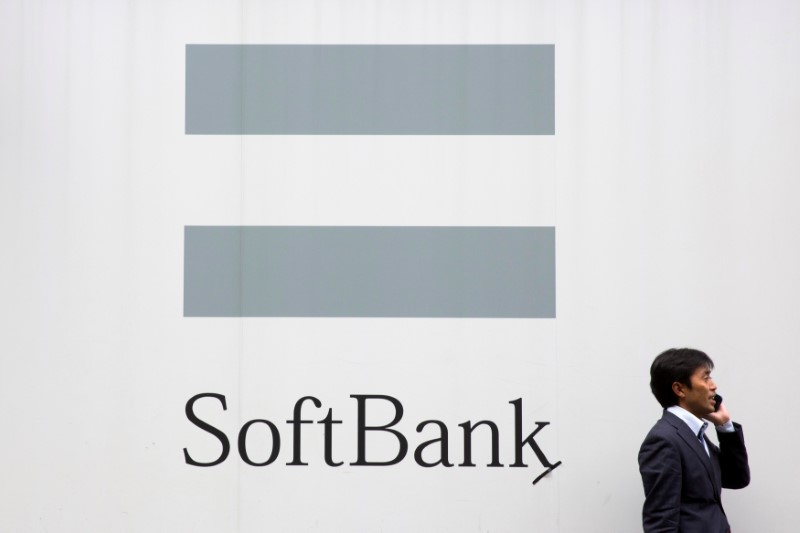By Umesh Desai
HONG KONG (Reuters) - Asia Inc's scramble to lock in low interest rates and investors' thirst for a steady stream of income have boosted perpetual bond issuance in the region to a record this year, led by a clutch of jumbo deals from ChemChina to Japan's SoftBank (T:9984).
Asian corporates outside Japan issued $18.2 billion of perpetual bonds so far this year, compared with $16.7 billion for all of last year and 2014's record of $17.95 billion.
The bond market boom looks set to continue as more companies, including Malaysian oil services company Yinson Holdings (KL:YINS) and Singaporean healthcare provider Parkway Pantai, wait in the wings to take advantage of investor demand for yield and a narrowing price gap with senior debt.
"We believe that the current low interest market conditions increase the opportunity for prospective issuers to lock in their funding, including through perpetual bonds," said Richard Fung at palm oil company Golden Agri-Resources Ltd (SI:GAGR).
Golden Agri has tapped a variety of sources for funding its business but has yet to issue perpetual bonds.
A perpetual bond has no maturity date and issuers pay a coupon forever, though they do not have to redeem the principal. Some have features which address the concerns of investors who do not want to hold unlimited maturity bonds. These include issuers' right to redeem the bonds on a fixed date and step-up features requiring them to pay a higher coupon if the call is not exercised - both incentives for a fixed date redemption.
In accounting terms, the bonds are classified as equity - an attractive prospect for Asia's more indebted companies.
SoftBank raised $4.5 billion last week in the largest-ever junk perpetual bond deal. The telecoms and tech giant is both rare as a junk-rated, as well as, Japanese issuer. Investors swarmed into the deals - SoftBank attracted orders of $11.7 billion and ChemChina's orderbook was more than $5 billion.
Other jumbo deals included China Zheshang Bank's (HK:2016) $2.175 billion transaction and Cheung Kong Property's (HK:1113) $1.5 billion offering, both enjoying healthy oversubscriptions.
Softbank's 6 percent notes, callable after six years, and the 6.875 percent notes, callable after 10 years, are treated as equity under IFRS accounting standard and are treated as 50 percent equity by ratings agency S&P - a source of comfort for current debt holders.
As a result of the bond's treatment as equity, the offering will leave Softbank's 14 trillion ($126 billion) debt pile unchanged for accounting purposes.
"We would have to expect that some bondholders were beginning to get uncomfortable with having a large amount of debt in line or ahead of them in the capital structure," CreditSights analyst Jay Mayers said.
"By issuing these perpetuals, bondholders are reassured by more cash on the balance sheet to work with and a debt raise without significant threat of a ratings downgrade on their holdings."
Many of the issuers are using perpetual bonds to finance acquisitions, or long-dated assets.
Chinese state-owned chemicals conglomerate ChemChina raised $20 billion in perpetual bonds and preferred shares in May to finance its acquisition of Swiss seeds maker Syngenta.
Last month, Singaporean telecoms service provider StarHub Ltd (SI:STAR) sold perpetual bonds in a S$200 million ($146.30 million) issue that attracted S$1.5 billion in orders.
"Despite our low leverage and strong balance sheet, we have opted for this route because the market conditions are robust and healthy for these instruments," said Dennis Chia, chief financial officer StarHub.
As for most issuers, Starhub's perpetual bonds are equivalent to cheap equity rather than expensive debt.
The 3.95 percent coupon on the StarHub bond is higher than any of the coupons the company is paying on its existing bonds - which is a big draw for retail investors who accounted for 47 percent of the orders.
At the same time it is lower than the 6.9 percent dividend yield the shares are returning.
"Demand for yield product is so strong in Asia that issuers are testing out new structures, and increasingly ones which are strongly in the issuers' favor," said Dhiraj Bajaj, Singapore-based fund manager at Lombard Odier.
In contrast to fixed maturity bonds, perpetual bond offerings in Asia are dominated by retail investors - another lure for corporate borrowers.
"This differing investor base tend to be sticky, buy and hold investors," said Jamie Tadelis, Hong Kong based co-head of sales at SC Lowy.
